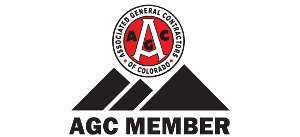CERTIFICATIONS





Do you need your concrete or asphalt project to be “right” the first time and look good as well!
ACI is YOUR Choice for PROFESSIONAL and QUALITY Concrete and Asphalt projects! Since 2017 we have created parking lots, access roads, concrete pans, side-walks, curbs, and gutters in client developments in addition to many other forms of concrete and asphalt applications.
ACI has a reputation for expert precision, dependability, safety, and flexibility on every project. Making ACI the preeminent provider of concrete applications and these principles set us apart from the rest of the industry.
So, if you need a project done right, done right the first time, and done right the first time, on time – give us a call and we can talk about your individualized requirements!
Commercial concrete refers to the use of concrete in the construction and maintenance of commercial buildings and infrastructure, such as foundations, parking lots, sidewalks, and roadways. It's characterized by its durability, strength, and ability to withstand heavy loads and traffic. Commercial concrete projects often require specific mix designs and reinforcement to meet the unique demands of commercial applications.
Key aspects of commercial concrete:
Commercial concrete is typically designed to be stronger and more durable than residential concrete, able to withstand heavier traffic and loads.
The specific mix ratio of cement, sand, and aggregate is carefully selected to achieve the desired strength, workability, and durability for the intended application.
Commercial concrete projects often require steel reinforcement (rebar) to enhance the structural integrity and ability to resist stress.
Common commercial concrete applications include:
o Foundations: Providing a solid base for commercial buildings.
o Parking Lots: Supporting heavy vehicle loads and providing a durable surface.
o Roadways: Resisting wear and tear from heavy traffic.
o Sidewalks: Providing pedestrian access.
o Walls and Slabs: Serving as structural components in commercial buildings.
Factors like load requirements, building codes, and environmental conditions influence the design and selection of concrete for commercial projects.
Concrete offers several benefits in commercial construction, including its durability, low maintenance, and potential for aesthetic enhancements.
Commercial concrete can be customized with various finishes, such as stamped and stained concrete, to enhance aesthetics and functionality.
Frequently Asked Questions
Q1: Is commercial concrete the same as regular concrete?
Commercial Concrete is a specific type of concrete commonly used in larger-scale construction projects, whereas regular concrete can refer to any concrete mix used in various applications, making them distinct in terms of purpose and scale.
Q2: How thick is a concrete foundation for a commercial building?
The thickness of a concrete foundation for a commercial building can vary widely depending on factors such as the building’s size, load-bearing requirements, local building codes, and soil conditions. Typically, commercial building foundations range from 6 to 12 inches (15 to 30 centimeters) in thickness, but they can be thicker in cases of heavier loads or specific engineering needs. It’s essential to consult with a structural engineer or architect to determine the appropriate thickness for your specific project.
Q3: What grade of concrete is used in Commercial Buildings?
The grade of concrete used in commercial construction projects typically falls within the range of 3,000 to 4,000 pounds per square inch (PSI), although higher-strength concrete, such as 4,000 to 5,000 PSI, may be employed for structures with greater load-bearing requirements. The specific grade chosen depends on factors like building design, intended use, and adherence to local building codes.
Q4: What factors affect the curing time of commercial concrete?
The curing time of industrial concrete is influenced primarily by environmental conditions such as temperature and humidity, as well as the specific mix composition, including water-to-cement ratio and the use of additives or admixtures. Higher temperatures and lower humidity levels can accelerate the curing process, while certain additives can be used to either speed up or slow down the cure time to meet specific project needs.
Q5: Can commercial concrete be used for decorative purposes indoors?
Commercial and industrial concrete can indeed be utilized for decorative purposes indoors, offering a versatile and durable option for flooring, countertops, and other interior design elements. Its ability to be stained, polished, and textured allows for a wide range of aesthetic finishes, making it a popular choice for modern and industrial-style interiors.
Asphalt
Commercial asphalt applications are diverse, ranging from essential infrastructure to recreational spaces. It's primarily used for roads, highways, and parking lots, but also extends to areas like airports, loading bays, and even some sports surfaces. Asphalt's versatility, durability, and relatively low cost make it a popular choice for various commercial paving needs.
FAQs:
Q1. What are the applications of asphalt?
Asphalt offers good strength, durability and weather-resistance, ease of maintenance and repair, and a neat, low-glare appearance providing good contrast to road-marking paint. This makes Asphalts equally suitable as surfacing for private drives, hardstands, car parks and parking areas for heavier vehicles.
Q2. What is the difference between residential and commercial asphalt?
Commercial asphalt contains more coarse aggregates and sometimes polymers. This makes it stronger and more resistant to damage. Residential asphalt is made with standard materials, focusing on a smooth finish rather than extreme durability.
Q3. Why use asphalt instead of concrete?
Asphalt is often preferred over concrete for road construction and paving due to its cost-effectiveness, ease of repair, and flexibility. Asphalt is generally less expensive to install than concrete, and it can be installed and finished more quickly, allowing for quicker traffic access, according to Britannica. Asphalt also offers a smoother and more comfortable driving experience and better traction, especially in wet conditions.
Here's a more detailed breakdown of the advantages of asphalt over concrete:
Asphalt is typically less expensive than concrete, both in terms of material costs and labor.
Asphalt roads can be installed and finished more quickly than concrete roads, allowing for faster reopening to traffic.
Asphalt is easier and faster to repair than concrete, with simple patching methods available for localized damage.
Asphalt is more flexible and can better accommodate ground movement and settling, reducing the risk of cracking.
Driving Experience:
Asphalt provides a smoother and more comfortable driving experience compared to concrete, especially in areas with uneven pavement.
Asphalt offers better traction and skid resistance, making it safer for vehicles.
Asphalt allows for better water drainage, preventing water from pooling on the road surface.
Which is cheaper, blacktop or concrete?
Generally, blacktop (asphalt) is less expensive to install than concrete. However, while the initial cost of blacktop is lower, it may require more frequent maintenance and repairs than concrete, potentially leading to similar long-term costs. Concrete, while more expensive upfront, typically has lower maintenance costs over its lifespan.
Here's a more detailed breakdown:
Asphalt may require more frequent sealing and patching, while concrete, though more expensive to install, may only require minor repairs every decade or so.
Asphalt requires more maintenance, including sealing and patching, to maintain its durability. Concrete requires minimal maintenance beyond occasional repairs.
Concrete is generally considered more durable and longer-lasting than asphalt.
Factors like location, complexity of the job, and the desire for decorative finishes can also influence the cost of both asphalt and concrete.
Here's a more detailed breakdown of commercial asphalt applications:
Infrastructure and Transportation:
Asphalt is the dominant material for road construction, handling heavy traffic and diverse weather conditions.
Airports rely on asphalt for runways and taxiways, providing a durable and smooth surface for aircraft operations.
Commercial parking lots are frequently paved with asphalt, offering a cost-effective and efficient solution for vehicle parking.
Asphalt is used in loading bays to withstand the weight and impact of heavy vehicles like trucks.
Asphalt is used for roadways and parking within distribution centers to handle heavy equipment and deliveries.
Asphalt is used for creating lanes for buses and bicycles, providing dedicated space for transportation.
Other Commercial Applications:
Asphalt can be used for running tracks, tennis courts, and other sports surfaces, providing a durable and resilient playing area.
Asphalt is used for roadways and parking areas within industrial sites, supporting the movement of vehicles and equipment.
Asphalt is used in hardstands for hard-surfaced areas like parking for heavier vehicles, ensuring durability and resistance to wear.
Commercial driveways, including those leading to businesses or loading bays, are often paved with asphalt.
Asphalt can also be used for footpaths and pavements, providing a durable and accessible walking surface.
Asphalt components are used in automotive manufacturing to reduce noise and vibrations.
Some municipalities consider porous asphalt for parking lots and driveways, promoting water infiltration and reducing stormwater runoff.
Contact ACI Construction Services today for a free consultation and estimate.
Get a Free Estimate



